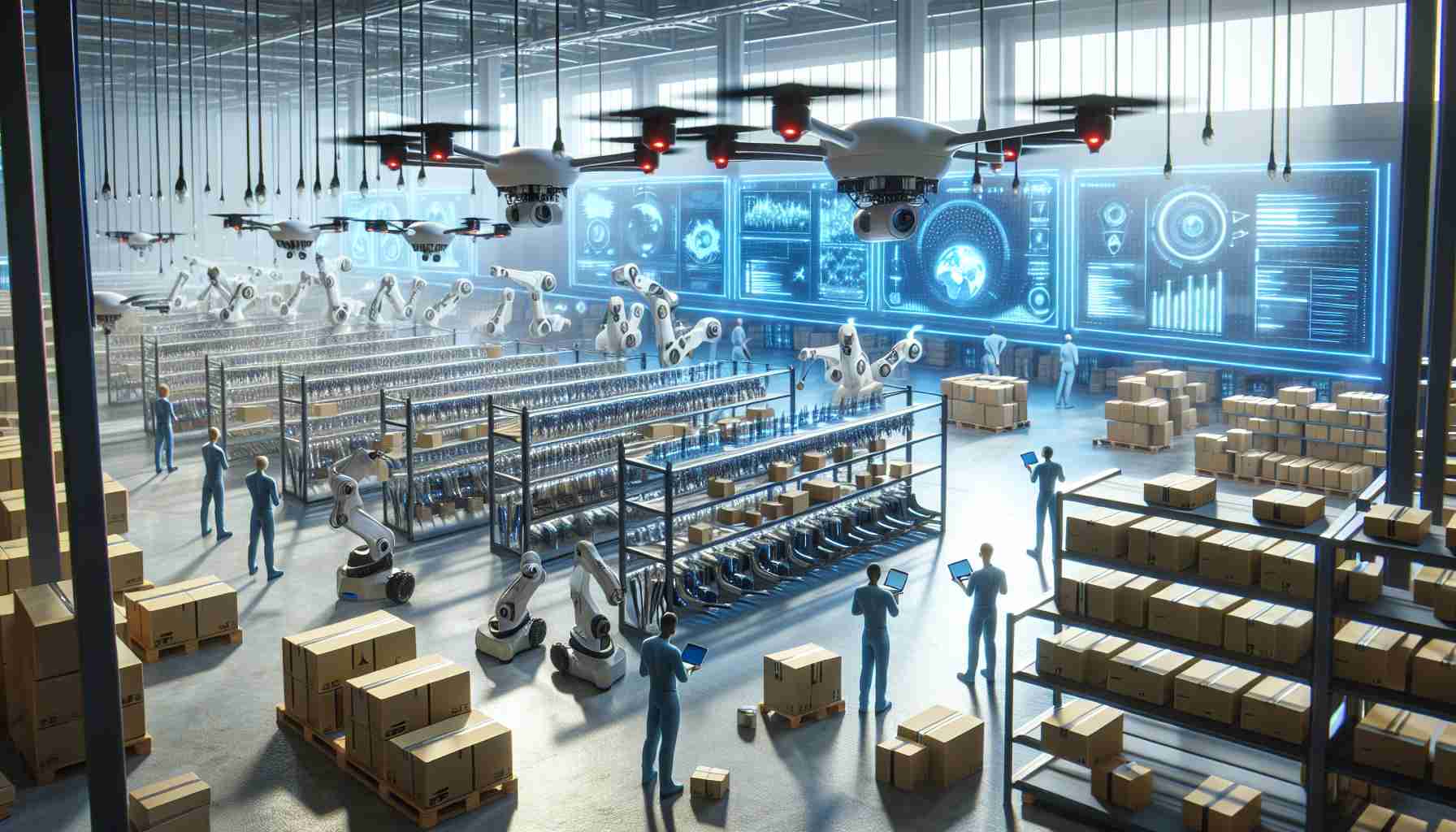Samsung Electronics is introducing a groundbreaking approach to delivering technology products through drone services, beginning with remote island regions near Jeju, Yeosu, and Tongyeong.
In a pioneering move, Samsung Electronics has unveiled plans to utilize drones for the delivery of their latest Galaxy Z series in island areas adjacent to Jeju, Yeosu, and Tongyeong. Instead of traditional means of transport, drones will be used to ensure swift and efficient distribution of the highly anticipated ‘Galaxy Z Fold 6’ and ‘Galaxy Z Flip 6’ models, slated for official release in the domestic market on the 24th of this month.
The commencement of the ‘drone delivery service’ is set to kick off on the 19th from Jeju, where drones will take off from centers in Sangmori and Geumneung, transporting products to islands such as Gapado, Marado, and Biyangdo. Expanding beyond Jeju, Samsung Electronics aims to extend the drone delivery service to over 10 islands, including the vicinity of Yeosu with islands like Hwahwa, Jeodo, Songdo, and Tongyeong with Bisando, Jwado, and Manjido.
By leveraging drones for delivery, Samsung Electronics is revolutionizing the accessibility of goods to areas where conventional shipping methods may face challenges. The introduction of drone deliveries not only ensures faster turnaround times, reducing delivery periods from a week to just a day, but also aligns with the government-led ‘Drone Pilot City Establishment Project,’ facilitating seamless collaboration with local authorities to optimize drone infrastructure.
Looking ahead, Samsung Electronics plans to expand the scope of drone delivery services to encompass a range of Galaxy mobile products, including smartphones, tablets, earbuds, and smartwatches, with a maximum payload capacity of 10 kg. This bold initiative underscores Samsung’s commitment to pioneering innovative technologies and services that enhance consumer convenience and accessibility in the era of artificial intelligence.
Revolutionizing Delivery Services with Cutting-Edge Technology: Enhancing Accessibility and Efficiency
While Samsung Electronics makes significant strides in utilizing drones for the delivery of their latest technology products, there are additional aspects to consider regarding the transformation of delivery services through cutting-edge technology. In this context, important questions arise that delve deeper into the implications and challenges associated with this innovative approach.
What are the Key Challenges Associated with Drone Delivery Services?
One of the primary challenges linked to drone delivery services is the implementation of regulatory measures to ensure safe and secure operations. As drones navigate through airspace to reach remote locations, regulations must be established to mitigate potential risks such as collisions, privacy breaches, and noise disturbances. Moreover, weather conditions and technical malfunctions pose operational challenges that need to be overcome to guarantee reliable deliveries.
How Do Advantages Outweigh Disadvantages in Drone Delivery Services?
The advantages of drone delivery services are numerous, including accelerated delivery times, reduced operational costs, and enhanced accessibility to hard-to-reach areas. By streamlining transportation processes, drones offer unparalleled speed and efficiency compared to traditional methods. However, challenges such as limited payload capacity, battery life constraints, and regulatory hurdles must be addressed to optimize the benefits of drone deliveries fully.
What Technological Innovations Are Needed to Further Revolutionize Delivery Services?
To revolutionize delivery services beyond drone deliveries, advancements in artificial intelligence, automation, and data analytics are essential. Integration of smart routing algorithms, real-time tracking systems, and autonomous vehicles can enhance the overall logistics efficiency and customer experience. By leveraging cutting-edge technologies, companies can optimize delivery networks, minimize delivery times, and improve resource allocation.
In conclusion, the utilization of drones for delivery services represents a significant step towards enhancing the accessibility and efficiency of product distribution. While there are challenges and controversies that need to be addressed, the potential benefits of revolutionizing delivery services with cutting-edge technology are substantial. By embracing innovation and continuous improvement, companies like Samsung Electronics pave the way for a future where convenience and speed converge to redefine the delivery experience.
Suggested related links:
Official Samsung Website























